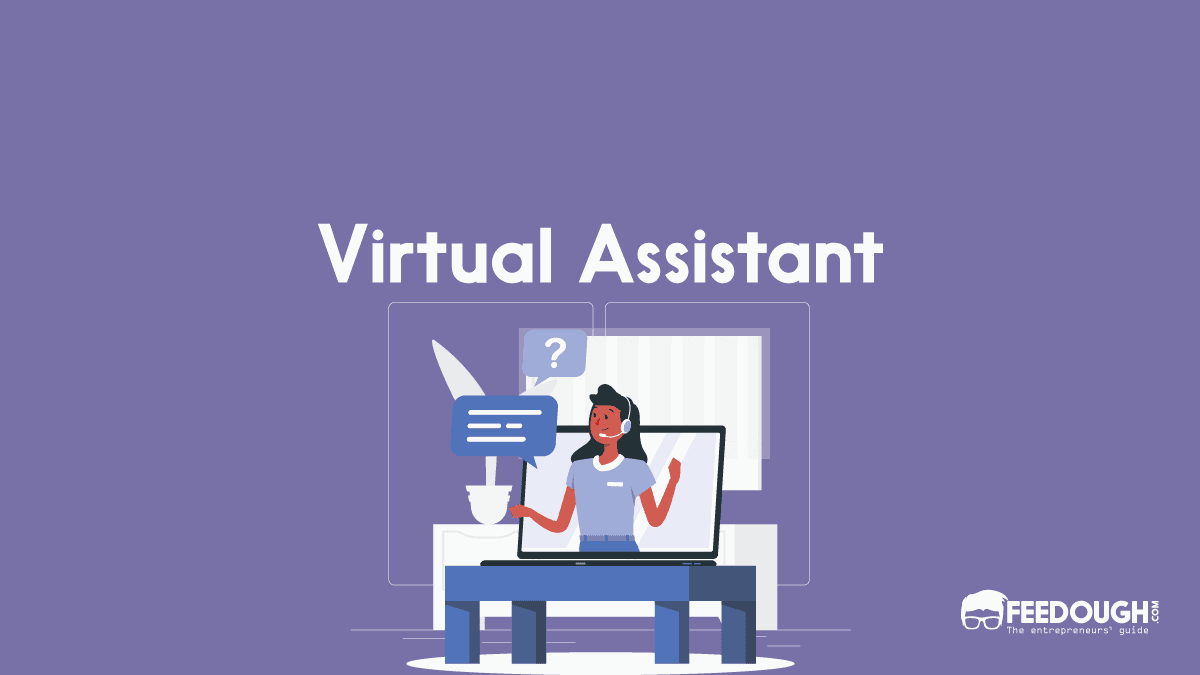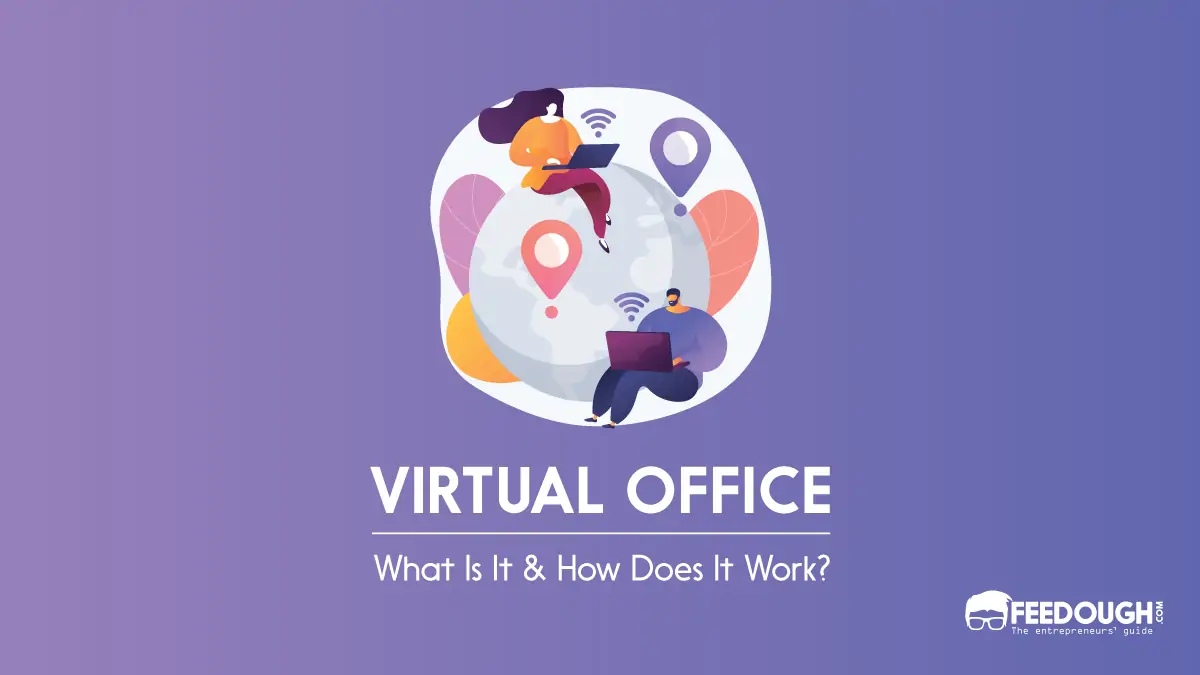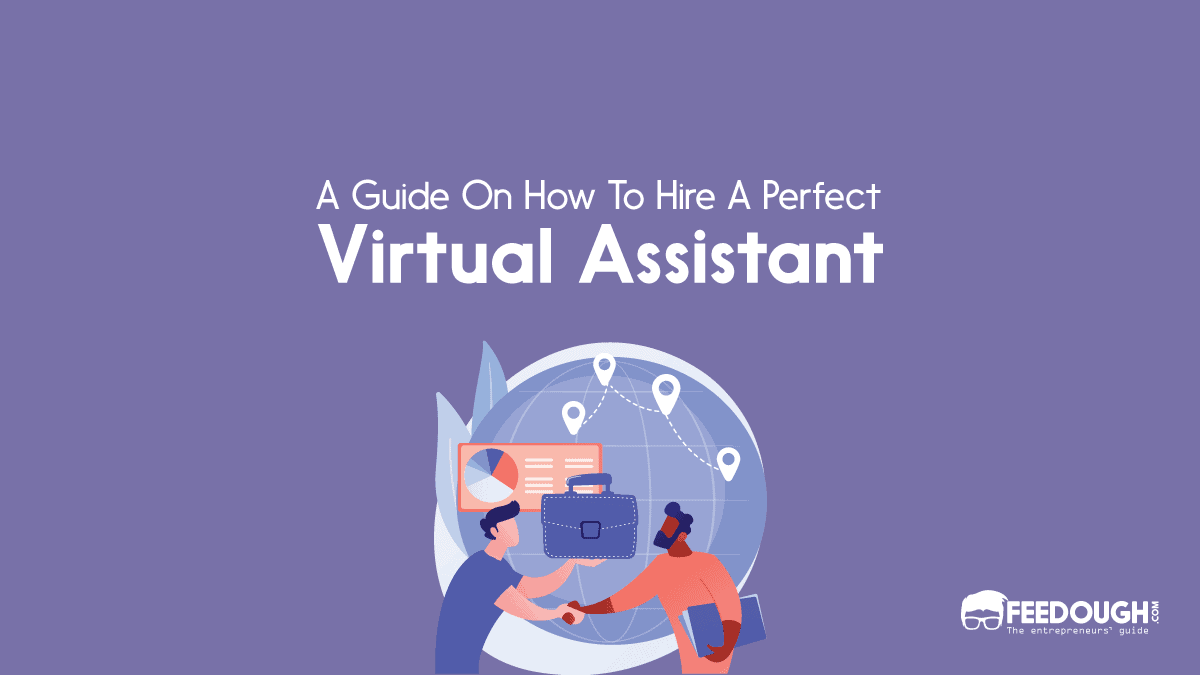A few decades back, having employees work from home sounded like a futuristic concept. Today, companies have employees they never meet, get work outsourced to people in countries they have never visited and even delegate tasks to people who do complete such tasks of twenty other firms.
The virtual assistant is one such concept that has gained widespread acceptance in the last few years. It is a person who works at your side, every step of the way, making sure all your details are attended to. They might be your personal assistant, secretary, accountant, bookkeeper, fax/phone operator, shipping clerk, quality control inspector, or some other type of administrative assistant you need.
But people often misunderstand what a virtual assistant really is. To them, it sounds like some kind of fancy word for “secretary”. But that is not true. There is a big difference between having a virtual assistant and having a traditional secretary.
This article will elaborate on such differences and explain what a virtual assistant actually is, what are their duties, how much do they cost, and are they even worth it.
Virtual Assistant Website | Best for | About | |
|---|---|---|---|
Time etc | Busy entrepreneurs and executives | Time etc offers highly skilled virtual assistants to help with tasks like scheduling, email management, social media, and more. | |
Upwork | Finding a wide range of freelance talent | Upwork connects businesses with freelance talent worldwide, offering virtual assistant services such as administrative support, customer service, data entry, and more. | |
Fiverr | Affordable virtual assistant services | Fiverr is a global marketplace that offers a range of virtual assistant services at competitive prices, including administrative support, project management, research, and more. | |
Zirtual | Dedicated US-based assistants | Zirtual provides dedicated US-based virtual assistants to busy professionals, handling administrative tasks, scheduling, research, and more. |
What Is A Virtual Assistant?
A virtual assistant or VA is an independent contractor who helps a client with support services but doesn’t work in-house.
That is, they’re not usually an employee of the organisation. What they do is work as an extension of the company, thus enabling the business to focus on its primary activities.
You can hire a virtual assistant to handle any type of administrative or support tasks you are struggling with. Virtual assistants have all this and more covered, whether it’s sending out invoices, keeping customers’ orders, taking care of marketing details, bookkeeping, answering phones, or handling your digital marketing operations. Many businesses use virtual assistants to free up their time to focus on growing their business. Others use them for cost-cutting; since they don’t need to pay the overhead for office space, equipment, etc.
A virtual assistant doesn’t necessarily work for just one client at a time. Some virtual assistants work on an ongoing basis for multiple clients. Clients might include an individual, a business, an association, a not-for-profit organization, or any other type of entity. Regardless of the arrangement, the virtual assistant charges a fee for their services. This fee is usually based on a per-project or per-hour basis.
But a virtual assistant isn’t a freelancer.
A major difference between freelancers and virtual assistants is that a virtual assistant works within the corporate structure, whereas a freelancer operates independently. This means that a virtual assistant, even though an independent contractor, will usually be answerable to someone in an upper management position like you or your CEO. On the other hand, a freelancer has no one above them to answer to.
What Kind Of Services Do Virtual Assistants Provide?
Virtual assistants provide a wide variety of services. The most basic are general virtual services like –
- Answering phones (including taking orders, scheduling appointments, and providing caller ID),
- Booking travel (including hotels, car rentals, and flights),
- Managing marketing details (including responding to customers’ emails, letters, and phone calls),
- Providing data entry (entering information into a computer such as addresses, phone numbers, and so forth), and
- Sending out invoices.
Next are specific virtual services like –
- Content writing and management: Some virtual assistants write articles and newsletters for their clients. Some also take care of everything needed to publish a website, including creating the website, uploading content, sending out press releases, and handling all customer inquiries.
- Search engine marketing and search engine optimisation (SEO): Depending on the skill level of the assistant, they may be able to increase a client’s organic traffic by performing some or all of the search marketing activities.
- Social media marketing: A few assistants are skilled at using various social media platforms (like Facebook, Twitter, Instagram, etc.) to increase brand exposure, build brand identity, and increase sales. They can help you create and post content for your social media profiles, monitor your existing posts and “like” activity, and even use this data to help you create more effective campaigns.
- Email marketing: Many assistants can craft a compelling sales message and send it via email. They may create the entire email marketing campaign or perform only the “hard” parts like writing the sales copy and assembling the mailing list.
- Accounting: VAs can even help you manage your personal or business accounts. They can prepare all your bills, reconcile your bank statements, pay your bills online, and even file your taxes for you.
- Website maintenance: Ensuring a site is technically up to date, running effective tests to find and fix problems, updating content as needed, etc. Clients may want their website “Baby-Sitter”, or they may want to do it themselves, but either way, having an assistant make sure it is running smoothly is a big plus for everyone involved.
- Web development: If a client already has a site and just needs it to be more user-friendly, more functional or simply needs it to be updated with some new features, an assistant can help by doing some basic code modifications.
- Client relations: Many clients appreciate receiving testimonials from satisfied customers, which can be collected and used throughout the site or in other marketing campaigns.
- Client services: Handling all client service issues like refunds, changing orders, shipping problems, etc.
- Image, audio, and video editing: Your virtual assistant can do the simple tasks of cutting out parts of a speech, taking a screenshot, or fixing a video or photo problem. They can also help you create more complicated content by taking notes as you talk about what you want to include in your sales pitch and then creating the actual written copy or recording of you saying it.
Although these are some of the more obvious duties of a virtual assistant, they are only the tip of the iceberg. The main duty of a good virtual assistant is to help the business owner with the nuts and bolts of running the business. And this is where most businesses run into trouble.
The Advantages Of Hiring A Virtual Assistant
With the advancement of technology and better communication, it’s easier than ever for two people who are not in the same physical location to work together on projects. In fact, many small businesses (and even some large ones) use a virtual assistant to great advantage. Here are just a few of the advantages of hiring a virtual assistant:
- Low Costs: Working remotely can dramatically affect a business’s bottom line. Not only does it make sense from an economic point of view, it also makes sense from a time standpoint. After all, you don’t have to pay for office space, equipment, payroll, etc. This can mean a savings of thousands of dollars per year.
- Less Employee-Related Responsibilities: When you outsource your administrative tasks to a virtual assistant, you eliminate a lot of what would otherwise be employee expenses and responsibilities. Because your VA is working not as an employee but as an independent contractor. You save on benefits like health insurance, pension contributions, vacation pay, etc. In addition, since your VA is not an “employee” of yours, they do not fall under the strict scrutiny of the IRS regarding income tax deductions and such.
- No Physical Presence Required: One of the biggest benefits of working with a virtual assistant is there is no need for you or your business to have a physical presence in a particular geographic location.
- More Time: Working remotely allows you to spend more time on the activities that generate your profits instead of spending it on non-core activities like paying bills, replying to emails, posting on social media, etc. In addition, delegating work to VAs frees up a lot of mental energy, allowing you to be more productive. Moreover, you get more me-time which means more time to pursue your hobbies, take some much-needed time off, go on that much-anticipated vacation or simply relax.
- Higher Productivity: One of the main reasons people delegate non-essential work to virtual assistants is to increase their productivity. Moreover, since virtual assistants are themselves experts at what they do, they tend to have a higher level of efficiency and produce results faster and with fewer errors than an “inexperienced” business owner could.
- Better Work Management: Delegating tasks to VAs allows you to concentrate on the big picture without getting bogged down by the details. You don’t have to micromanage the work of your VA; instead, you can simply check in from time to time and guide as needed. Outsourcing your administrative tasks allows you to get back to the core of being a business owner. The crucial stuff that makes your business tick. The stuff that actually produces your profits. You see, when you outsource non-core tasks, you free up your time and energy to become more productive, allowing you to create more profits for your business.
- Low maintenance: Since virtual assistants are experts at what they do, they require much less supervision and training than an employee would. Thus, they require much less of your time and energy, so you can spend it where it’s most profitable…running your business!
- Fill the skill gap: Another advantage of using a VA is that it can fill skills gaps in your business. For example, let’s say you don’t have the expertise or the time to write a certain type of sales letter. A virtual assistant specialising in writing can do it for you at a fraction of the cost and with much greater speed and accuracy than you could do it yourself.
- Peace of mind: One of the main reasons people hire a virtual assistant is to have some “peace of mind” knowing they have things taken care of without having to worry about doing it themselves. When you hire someone to do routine chores, it allows you to get back to running your business and growing your profits without having to micromanage every detail.
Disadvantages Of Hiring A Virtual Assistant
While the trend showcases the benefits of hiring a virtual assistant in the limelight, virtual assistants do come with their own set of disadvantages. These are:
- Communication problems: Businesses usually tend to hire virtual assistants from countries like India and the Philippines because they are relatively cheap compared to Americans or Europeans. Hence, the virtual assistant often operates in a time zone different from the employer’s. This makes communication a real problem. For example, if your virtual assistant is located in India and you are based in California, he will operate on the opposite side of the globe. Thus, any kind of real-time communication with him will be difficult. This problem is further aggravated by the fact that many virtual assistants from such may not have a good command of the English language.
- Security Risk: Another major disadvantage of hiring a virtual assistant is the security risk involved. Consider this: A lot of times, these individuals will have access to your company’s most sensitive information like your bank account details, credit card numbers, email passwords, and so on. Moreover, virtual assistants are not vetted by any regulatory agency so you could end up with an individual who is stealing from you and running off with your money.
- Lack of required supervision: For jobs requiring extensive supervision or micromanaging, the VA model could be a disaster.
- Multiple clients problem: Since a virtual assistant is an independent contractor, it can take more than one client. This could result in a lack of focus and delayed responses.
- Lack of integrity: Another thing to consider is the lack of integrity among a significant percentage of virtual assistants. Why? Simply because they are so eager to please their clients, they will say or do almost anything to get work.
Is It Worth Hiring A Virtual Assistant?
There is no one size fits all.
While every business operates differently, the question of “is it worth hiring a virtual assistant” really comes down to whether or not you can benefit from outsourcing your support tasks to someone else. The benefit can be monetary or non-monetary. That is, you
- Save money,
- Get more time, or
- Get better work.
Either way, it’ll be beneficial to outsource the task to a VA. You should not hire a VA if you don’t get any of these benefits. Remember: Not all businesses are created equal. Some are more complex than others. Therefore, you need to understand your business structure and determine whether or not VAs can make a positive impact on your bottom line.
Go On, Tell Us What You Think!
Did we miss something? Come on! Tell us what you think of our article on virtual assistants in the comments section.
A startup consultant, digital marketer, traveller, and philomath. Aashish has worked with over 20 startups and successfully helped them ideate, raise money, and succeed. When not working, he can be found hiking, camping, and stargazing.






![How To Outsource Customer Service? [Detailed Guide] outsource customer service](https://www.feedough.com/wp-content/uploads/2022/09/outsource-customer-service.webp)


